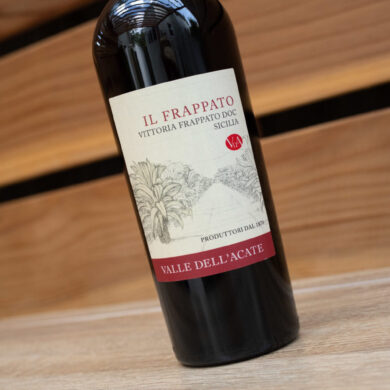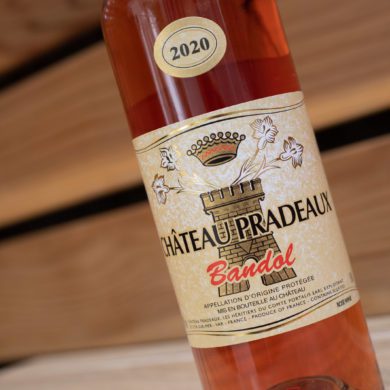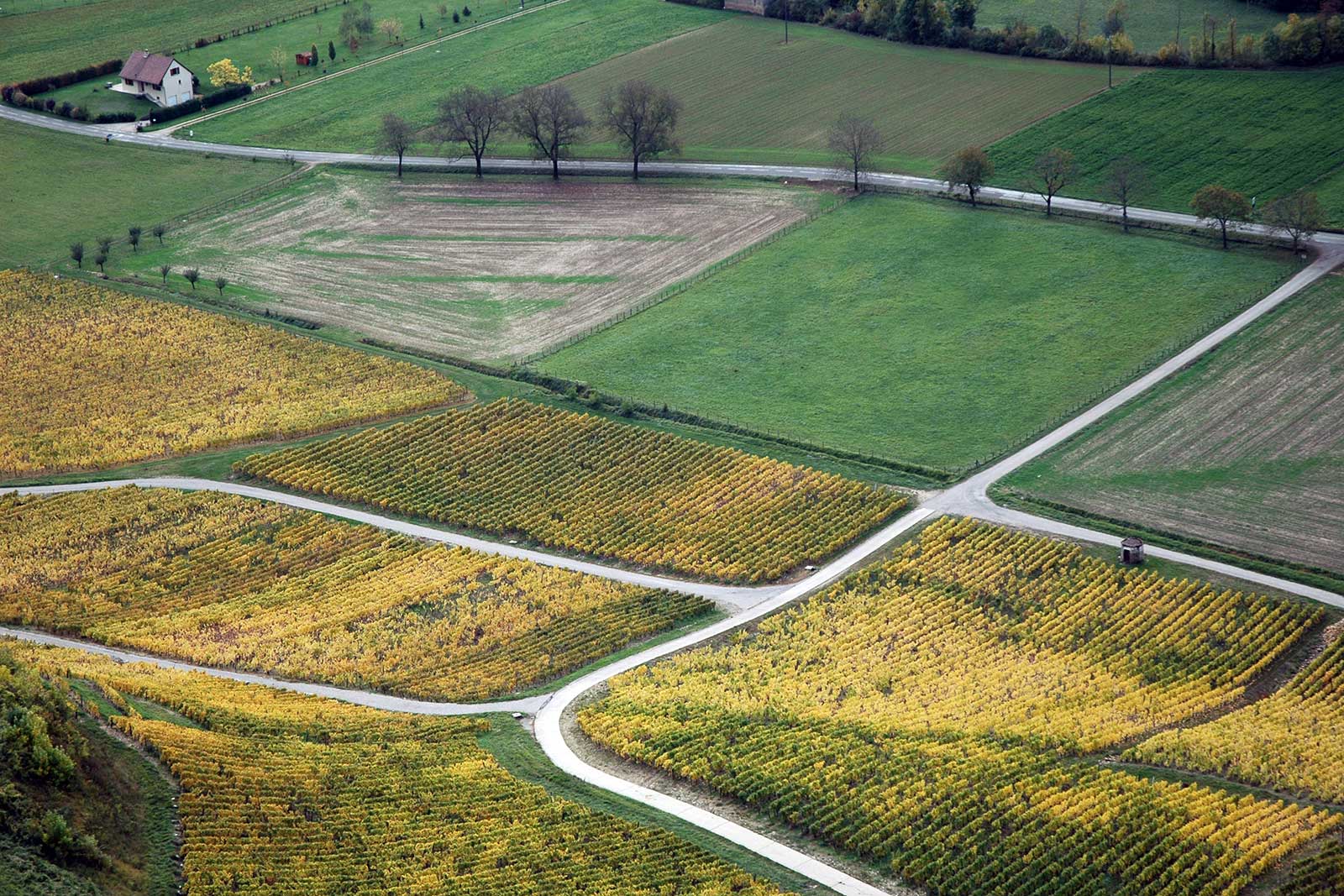For years, I always associated trimming the tree with one drink: egg nog and a touch of bourbon. It used to be my parent’s go-to drink for activities around the tree on Christmas Eve when I was growing up, and there is no doubt it tastes like the holidays, especially with a pinch of nutmeg on the top.
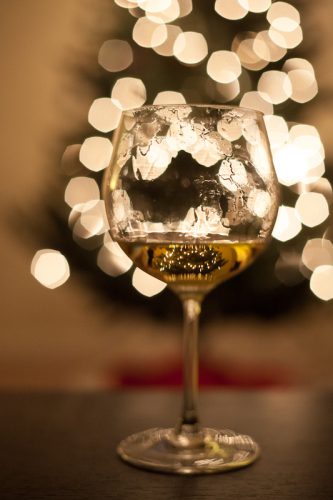 But over the years, egg nog has begun to gross me out, leaving in its place a vacant spot for a new holiday tipple.
But over the years, egg nog has begun to gross me out, leaving in its place a vacant spot for a new holiday tipple.
This year, I tried something new to accompany our family’s inaugural event: trimming the tree. We opened a small bottle of German Eiswein, and its was quite pleasant.
Eiswein (aka Ice Wine) is a super sweet wine made from grapes that have frozen on the vine, a process that concentrates (and I mean, really concentrates) the sugars. Canada, New York and especially Germany have laid claim to the best ice wines, in large part because all three areas have the right amount of extreme cold (a prerequisite for making this beverage), and they grow the kinds of grapes that aren’t destroyed by those temperatures. Most ice wines are made from Riesling, but you might also find Cabernet Franc or Gewürztraminer renditions as well. These grapes carry the right balance of aromatics and acid to survive the process.
Ice wines are incredibly laborious, and as a result, they are almost universally expensive. They are harvested and crushed at night while still frozen, often as late as December or even January. But all of that depends on whether the grapes even get that far. Birds and other critters have to be fended off with netting, and even then, milder winters can mean the grapes never freeze appropriately. To make ice wine, winemakers take significant financial risk, and that’s reflected in the price tag.
Our Eiswein was from Heinz Eifel, a small German producer that has made quite a name for itself with its fleet of Rieslings. Their Eiswein, however, is mostly Sylvaner (70%), a simple grape that only achieves levels of prestige as a white wine in Alsace. But if the Heinz Eifel Eiswein is any indication, it has incredible potential when used as an ice wine. Combined with 30% Riesling, their versions bursts with raisin, orange and butterscotch flavors, making it a great companion with a decadent Christmas cookie or slice of sharp cheese. It is a wine thick with sweetness (just look at the tears on the glass in the photo above), so if that’s not your bag, save your coin for something else.
So do we have a new holiday tradition in our household — ice wine and trimming the tree? Hard to tell. If money were no object, yes, but the Heinz Eifel Eiswein goes for $30 for a 375mL bottle (which is on the low end for an ice wine). The cost is justified by the labor and risk it takes to make such a wine, and it is a real beauty worth savoring. But that’s a lot of money for essentially three, maybe four, small glasses of wine. As a result, it screams for special occasions. Which is what this is I guess: watching your children delicately hang family ornaments on the tree while “The First Noel” plays. Sipping and savoring an ice wine in that moment, cost was hardly on my mind.
2012 Heinz Eifel Eiswein
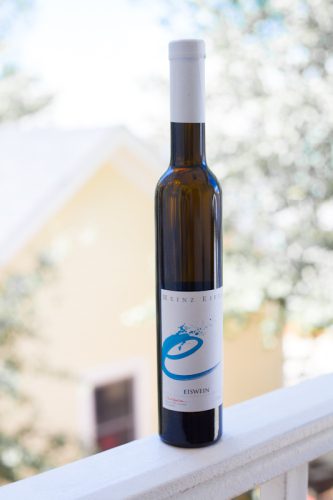 Rheinhessen, Germany
Rheinhessen, Germany
Grapes: Sylvaner (70%), Riesling (30%)
Alcohol: 9.4%
Rating: ★★★★ (out of five)
Profile: ★★★★ 1/2
Food-Friendliness: ★★★ 1/2
Value: ★★ 1/2
Recommended for: Any holiday dessert, sharp cheeses, or just sitting by a Christmas tree or fireplace.
Tasting notes: A gorgeous and intriguing sweet wine with bright, fun flavors. Golden color with slight beading and a very thick body. Sweet raisin aromas are balanced by citric notes, and the palate is lively with raising, orange and butterscotch flavors. Drink now, or age for several years.
Additional Reading
- Ice Wines From Around the Globe – A good tutorial from Wine Enthusiast
- Fact Sheet: Ice Wines – by Richard Nalley, Food & Wine Magazine


